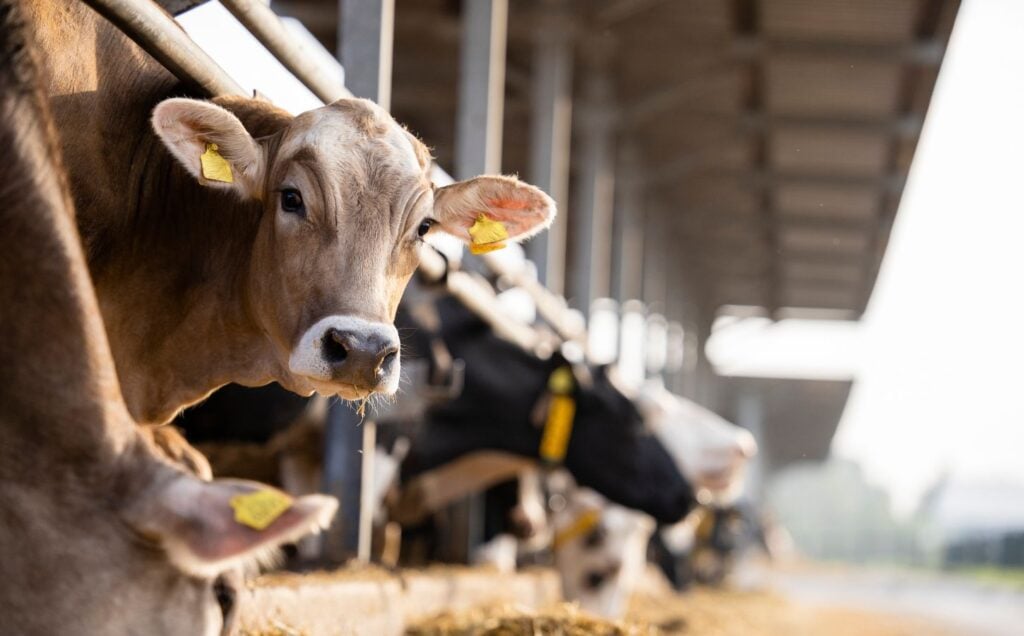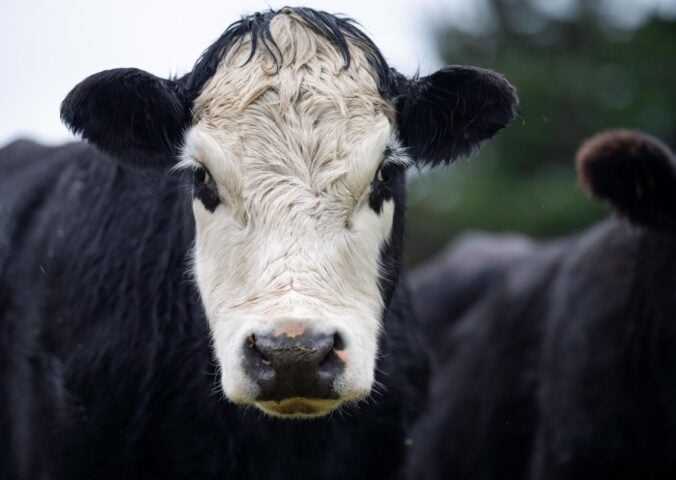When covering climate content, major news organizations leave out the impact that our food systems have on the environment, according to the latest analysis. A review of 1,000 articles found that the vast majority – 93 percent – fail to mention animal agriculture. The qualitative research, led by Faunalytics and the non-profit news organization Sentient Media, highlights a glaring omission when it comes to public understanding of the role livestock farming plays in the climate crisis.
The report, “Animal Agriculture Is The Missing Piece In Climate Change Media Coverage,” surveyed climate articles published by 10 major news outlets such as the Wall Street Journal and The New York Times. The analysis found that only seven percent of the articles mentioned animal agriculture. What’s more, the majority of these articles focused on the impact the climate is having on livestock (such as farmers being forced to sell animals for slaughter early due to rising temperatures), rather than the impact that livestock has on the environment.
Climate articles tended to focus on aspects like mining, manufacturing, and energy production (mentioned in 68 percent of articles) and fossil fuels (mentioned in 53 percent).
Animal agriculture and the climate

There’s no doubt that animal agriculture is catastrophic for the environment. It’s responsible for at least 14.5 percent of greenhouse gas emissions, a key issue being methane. Around a third of human-caused methane comes from farmed cattle, which they emit through their belches. Livestock farming is also a leading cause of deforestation and biodiversity loss. A recent report found that our food system alone would push us past the 1.5C limit outlined in the Paris Agreement, even if all fossil fuels were eliminated.
Despite this, recent media outlets neglect to cover, or even mention, the significant impact of meat and dairy production on the climate crisis, or the fact that one way to live more sustainably is to lower our meat consumption. This new research found a disparity between how much coverage energy and fuel get versus the coverage animal agriculture receives.
Animal agriculture gets little coverage
Even when food systems get mentioned, animal farmers often get a pass, the authors note. “The cattle industry alone accounts for over 60 percent of animal agriculture emissions, yet only 30 percent of the articles that brought up animal agriculture mentioned the cattle industry,” Coni Arévalo, a research associate at Faunalytics, said in a statement. “Our research shows that there is a major disparity between the amount of emissions caused by animal agriculture and how much media coverage this industry gets when climate change is the topic of discussion.”
The importance of plant-based diets
In most articles, the writers downplayed the effectiveness of plant-based diets on tackling the climate crisis, the study found. The mention of dietary changes away from meat and dairy and toward plant-based nutrition was rarely mentioned at all.
The review emphasized that the articles missed several opportunities to educate readers about the associations between the climate crisis and food production and our dietary choices as consumers. The many articles covering energy, transportation, emissions, and fossil fuels were rarely tied to agriculture, the report states, despite the parallels between them.
The report highlights the news outlets that do cover the link between climate change and animal agriculture. One standout was The Los Angeles Times, which mentioned animal agriculture in 14 percent of its climate articles. Both Reuters and CNN discussed the importance of diet in relation to the climate crisis in articles that did bring up animal agriculture.
Environmental dangers of methane
Methane, which is around 80 times more warming than carbon in its first two decades in the atmosphere, particularly lacked coverage The report pointed out that 54 percent of all livestock emissions are methane, but only 22 percent of the articles that mentioned animal agriculture mentioned it.
A previous study found that methane is the cause of about 25 percent of global warming. But a review of policies in place found that they address just 13 percent of all methane emissions. The study authors note that without coverage and media attention, the policies are not getting the support they need to be enforced.
Why media attention matters for sustainability
By moving away from meat consumption, consumers could help reduce animal agriculture’s environmental impact.
According to EAT-Lancet Commission recommendations, consumers in the United States would have to consume 70 percent fewer animal products on a daily basis to reach climate goals. Authors therefore believe it’s vital for the media to put forward the link between animal agriculture and the climate crisis.
“The media holds incredible influence over how we live our lives and the choices we make,” said Ana Bradley, executive director of Sentient Media. “We’re missing a huge piece of the story by continuing to ignore the role of industrial animal agriculture. With the release of this report, we hope to build a network of journalists and publications who want to fill this gap in coverage, and arm readers with the facts.”




